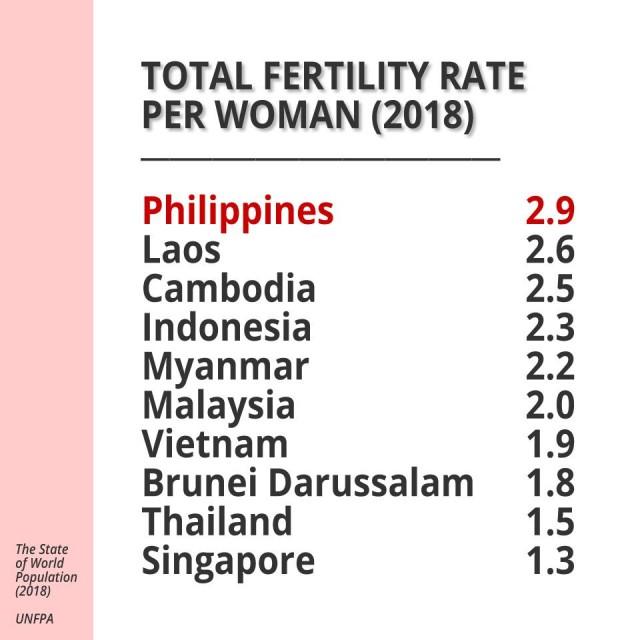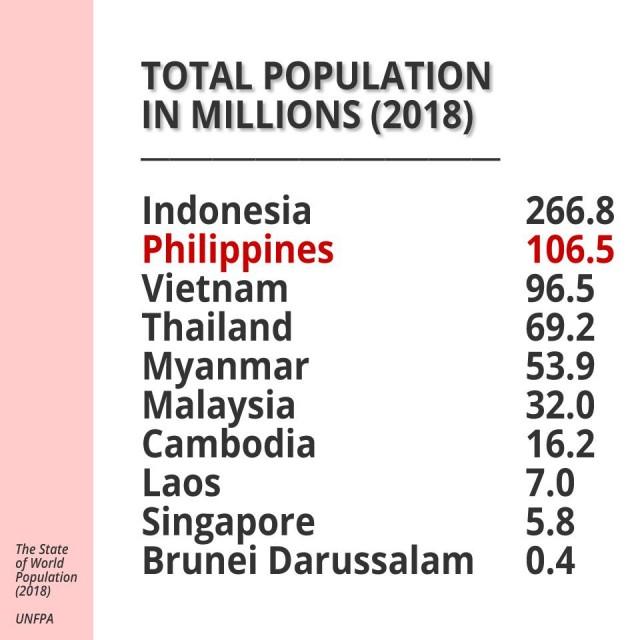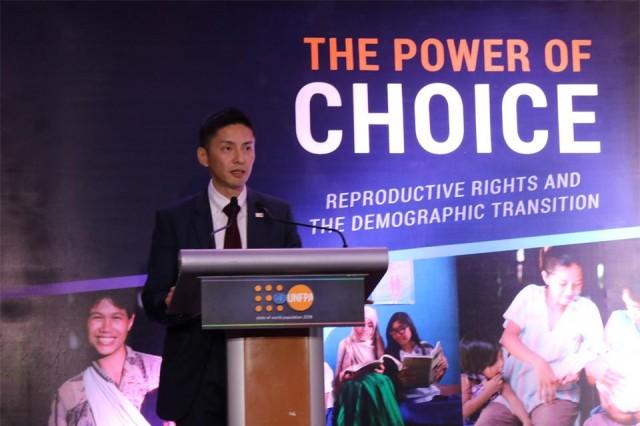PHL has highest fertility rate, 2nd largest population in ASEAN — 2018 UNFPA report
Despite having the passage of the landmark Reproductive Health Law, the Philippines continues to lag behind its ASEAN neighbors in providing life-saving and life-changing services for its citizens in terms of reproductive health.
On Wednesday the United Nations Population Fund (UNFPA) released the 2018 State of the World Population Report. According to their data, the Philippines has a total fertility rate (per woman) of 2.9 — the highest in the ASEAN region.

The Philippines also has one of the highest populations in the region, second only to Indonesia.

The UNFPA additionally identifies the following problems in the country: 49% of unmarried, sexually active women and 17% of married women have an unmet need for family planning; and one in five girls age 19 is either pregnant or has given birth.
In an interview with GMA News Online, Country Representative of the United Nations Population Fund Mr. Iori Kato said that their organization sees the Responsible Parenthood and Reproductive Health Act of 2012 as a triumph and he added it is a comprehensive law.
However, Kato said that the words of the law mean nothing if the goals that inspired it are not being accomplished.
"It's one thing to have a law, it's another thing how to implement the law. Implementation needs to be done with the resources, both financial and human resources. We in UNFPA look forward to continue to work with the government for the full implementation of the law."

One of the UNFPA's concerns is the large number of young people in the Philippines who are unemployed or under employed. Kato said that the government must invest in its citizens before it is too late.
"Invest more in the health of the young people and then education — quality education. After we ensure better health and better education for the younger people, we have to make sure that they have decent jobs," he told GMA News Online.
Economic opportunity rises with responsible family planning, Kato said, and access to more choices regarding reproductive health improves the chances of a child's survival. It also leads to healthier people who are better educated, ready to take on better paying jobs.
"It's not only a right; we promote reproductive health rights because it makes economic sense. Unless you invest more in reproductive health, your economic development cannot be achieved. It is an integral part of the millennial development goals," Kato explained.
He added, "Without quality population, how can you think of education? Without quality people, how can you think of industrialization, especially for a youthful country like the Philippines."
The UNFPA is the lead UN agency for delivering a world where every pregnancy is wanted, every childbirth is safe and every young person’s potential is fulfilled. UNFPA reaches millions of women and young people in 155 countries and territories, including the Philippines. — LA, GMA News



